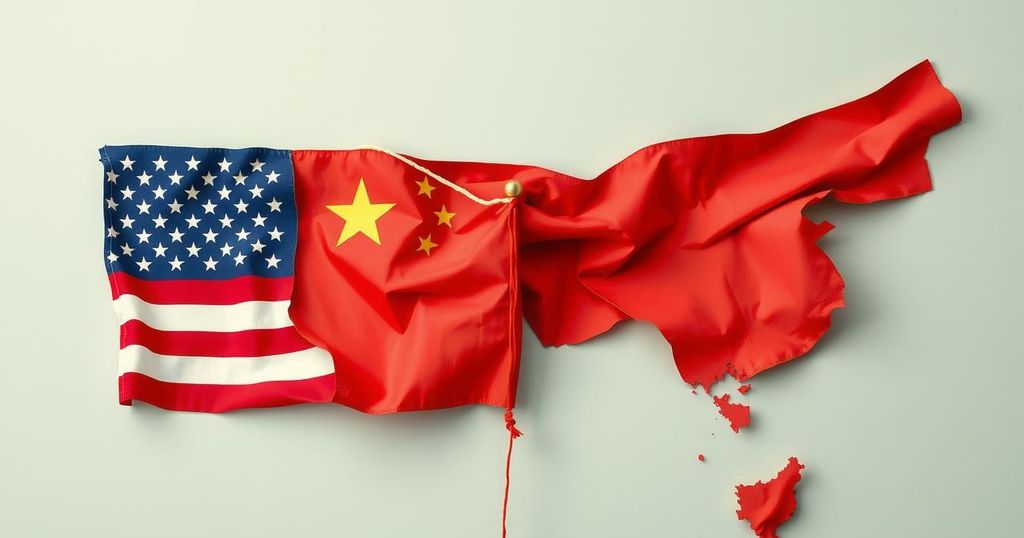The article explores the complexities of measuring whether China’s economy surpasses that of the United States, emphasizing factors such as industrial output, environmental impacts, and military preparedness. It critiques traditional economic indicators and calls for a broader understanding of national power in the context of global challenges like climate change. The evaluation of these dynamics is essential in addressing the geopolitical landscape and fostering effective competition.
The evaluation of whether the Chinese economy surpasses that of the United States hinges upon diverse metrics and interpretations. The incoming U.S. administration may exhibit challenges in effectively opposing China’s assertive strategies, given prior tendencies to subordinate U.S. alliances. Additionally, prevailing economic theories often neglect urgent variables, such as climate change, which imposes a significant toll on economies globally and should be integrated into discussions of growth and power metrics.
China’s rapid industrialization comes with environmental consequences; the country continues to increase coal plant operations despite its claims of leading in renewable energy, thereby exacerbating global warming. Moreover, the broader implications of climate change should not be trivialized, as they contribute significantly to economic instability in various regions, leading to migration crises not solely rooted in climatic shifts.
The conversation surrounding China’s economic prowess often prioritizes quantitative comparisons, such as manufacturing outputs, yet it must also encompass qualitative dimensions, including technological advancement and military preparedness. The United States, with its smaller population, faces inherent challenges in matching China’s scale of production, especially in the context of maintaining defense needs.
Given these complexities, it becomes imperative for analysts to transcend traditional economic indicators by incorporating a more holistic understanding of national power dynamics, encompassing geopolitical tensions and sustainability issues. The current geopolitical landscape suggests that the U.S. must recalibrate its focus to enhance its industrial capabilities while maintaining a nuanced relationship with global economic powers. Ultimately, understanding the multifaceted nature of economic competition is essential in addressing the uncertainties posed by an evolving global order.
The discussion regarding the comparative strengths of the U.S. and Chinese economies is multifaceted and context-dependent. Numerous factors influence this comparison, including economic size, manufacturing capabilities, technological advancement, and environmental impacts. The author raises critical points about the long-term implications of climate change, economic growth, and national power, urging for a comprehensive measurement approach that goes beyond traditional GDP comparisons. Additionally, geopolitical dynamics, particularly concerning military capabilities and international relations, play a crucial role in assessing national power.
In conclusion, the debate over whether China’s economy is ahead of the United States encompasses various dimensions, including economic output, environmental sustainability, and military readiness. It also requires a reassessment of traditional metrics to include qualitative factors influencing national power. As global tensions intensify, a holistic approach to measuring economic and strategic capabilities will be crucial for navigating the complexities of U.S.-China relations in the coming years.
Original Source: www.noahpinion.blog






